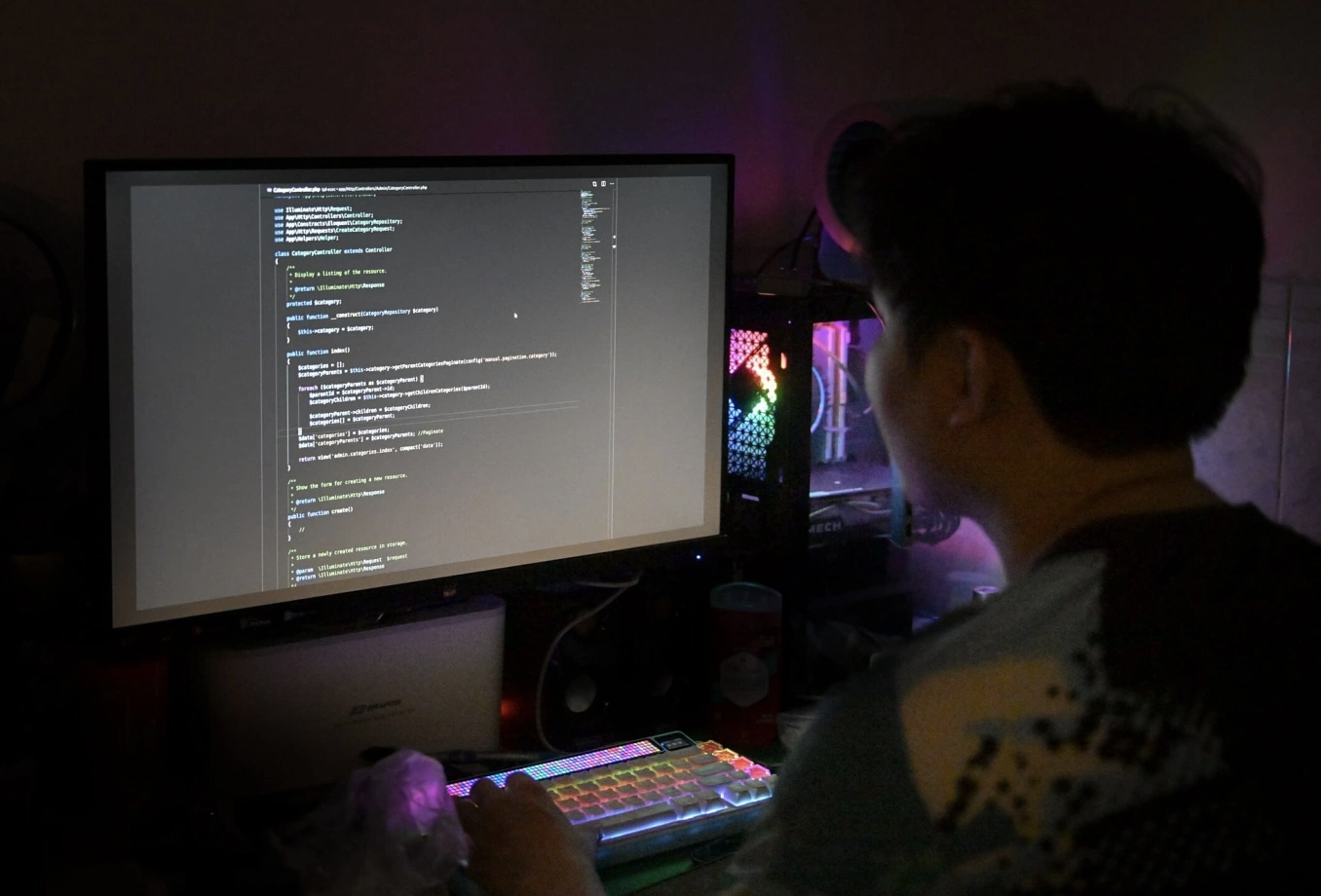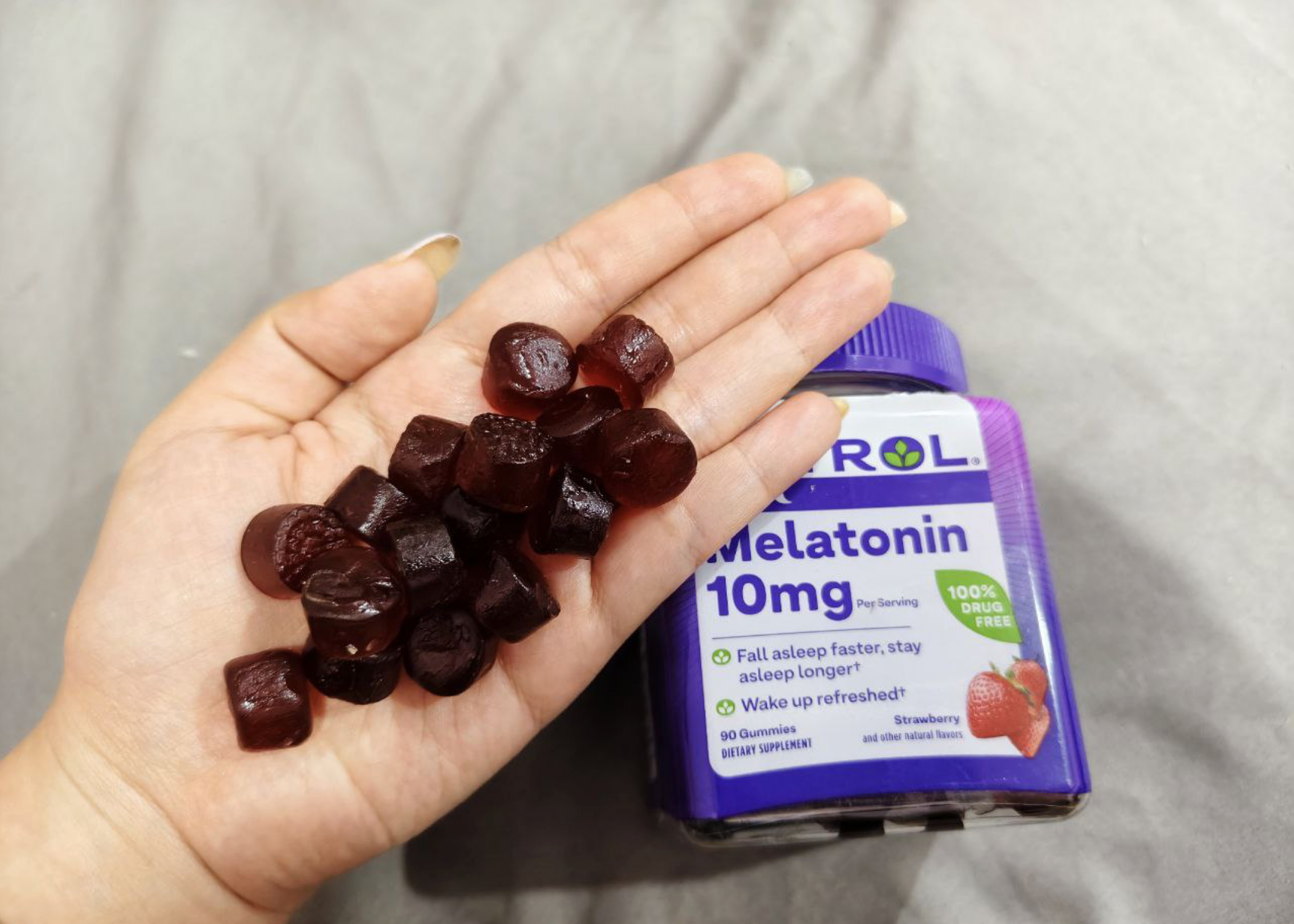At 3 a.m., Ha Anh would still be curled up in bed with her phone, scrolling endlessly through TikTok and Instagram videos. The 27-year-old marketing employee in Ho Chi Minh City maintained this habit for years until she realized she was becoming a "zombie" every morning.
"I felt like the walking dead, with dark circles under my eyes and a sluggish mind," Ha Anh recalled the exhausting days when she frequently missed deadlines due to lack of focus. Now, she spends over 1.2 million VND on an essential oil diffuser, subscribes to online meditation classes, and strictly adheres to a no-phone rule after 9 p.m.
Similarly, 25-year-old programmer Minh Tuan, in Tay Ninh, used to be accustomed to all-nighters coding until 4 a.m. Even after adjusting his work schedule, he couldn't escape the vicious cycle of sleep disorders. Fearing long-term consequences, Tuan spent 2 million VND on three bottles of imported melatonin gummies, but the dependence prompted him to seek healthier solutions.
"I never thought sleep could change my life so much," Tuan shared after investing 1 million VND in premium scented candles and 1.8 million VND monthly for evening yoga classes. Now, he sleeps a full seven hours each night, a stark contrast to his previous sleepless nights.
 |
One common behavior among young people is staying up late, even all night, to complete work, study, or for entertainment. Photo: Hoang Minh |
One common behavior among young people is staying up late, even all night, to complete work, study, or for entertainment. Photo: Hoang Minh
According to Doctor Dang Nhat Tam, Deputy Head of the General Internal Medicine Department at Nguyen Tri Phuong Hospital, the "night owl" lifestyle has become widespread not only in major cities but also in rural areas, where young people have increasing access to the internet. Scientists refer to this group as "night owls" because their daily time allocation resembles that of owls—active at night but sluggish in the morning.
The consequence of going against this natural rhythm is a completely disrupted biological clock. Research shows that sleep disorders not only cause problems with memory and concentration, but also increase the risk of cancer, stomach ailments, asthma, COPD, and immune-related diseases.
Associate Professor, Doctor Nguyen Anh Tuan from the 108 Military Central Hospital, states that late-night sleeping habits are a leading cause of obesity, hormonal imbalances, and an increased risk of type 2 diabetes. Insufficient sleep also affects appearance—skin loses moisture and pH balance, leading to dullness and premature aging due to limited growth hormone production.
Scientific research also demonstrates that circadian rhythm disruption is a contributing factor to depression and anxiety disorders. Notably, sleeping less than seven hours or more than 9 hours per day increases the risk of stroke, especially hemorrhagic stroke.
Following the Covid-19 pandemic, statistics from Japan, South Korea, China, Europe, and the US reveal that many young people no longer view staying up late as a sign of productivity. Instead, they are willing to spend money to improve their mental and physical health. This focus has created an entirely new industry. Meditation and yoga centers are springing up, offering courses specifically designed for busy young people. According to Very Well Health, regular meditation can slow breathing, reduce stress hormones, and promote deeper sleep, while yoga helps alleviate insomnia symptoms and manage stress.
Sleep-aid products like scented candles, lavender essential oil, and melatonin gummies are heavily promoted on social media. Some domestic brands even offer inexpensive scented candles starting at 50,000 VND, competing with premium imported products.
Melatonin, a hormone produced by the brain to regulate the natural sleep-wake cycle, has become a "miracle cure" trusted by many young people. The CDC reports a surge in melatonin use among adults since the early 2000s. A 2019 analysis of 23 studies concluded that aromatherapy is effective in improving sleep quality.
Technology also contributes to this trend. Sleep-tracking apps have been downloaded millions of times in Vietnam, while many young people invest 1-5 million VND in smartwatches or fitness trackers to monitor their sleep quality.
 |
Melatonin gummies purchased by Minh Tuan for nearly 500,000 VND. Photo: Provided by the interviewee |
Melatonin gummies purchased by Minh Tuan for nearly 500,000 VND. Photo: Provided by the interviewee
However, not everyone succeeds in "buying sleep." Some young people overuse melatonin gummies or other sleep aids, leading to dependence. Doctor Nikhil Modi, from Indraprastha Apollo Hospital, warns that using melatonin without identifying the underlying cause of sleep problems can delay proper treatment and interact with other medications.
Excessive spending on products like premium scented candles or diffusers can sometimes create financial strain, especially for those with average incomes. Doctor Doan Du Manh from the Vietnam Society of Vascular Diseases warns that improper use of scented candles can be harmful, increasing the risk of cancer due to phthalates released into the air when the candles burn.
Overuse of low-quality scented candles can cause irritation in sensitive individuals, increasing the risk of COPD, allergic rhinitis, and asthma.
Experts recommend balancing work and rest, maintaining consistent sleep-wake schedules, and limiting electronic device use at least 30 minutes before bed. A healthy diet, regular exercise, and routine health checkups also play a crucial role.
Regarding melatonin, Doctor Modi advises consulting a doctor, starting with a low dose (0.5-1 mg), and using it only for short periods, not as a nightly solution. In many cases, simply adjusting lifestyle habits can improve sleep without medication.
Minh Tuan shared that after improving his sleep, he not only works more efficiently but also has time to enjoy life, such as taking walks in the park or reading. Ha Anh, who once believed that staying up late equated to productivity, now understands that adequate sleep contributes to a better quality of life.
My Y












